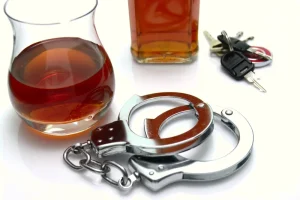
Hence, engaging in repeated mental exercises and support programs can further accelerate recovery. Ultimately, sustained sobriety leads to better cognitive function and quality of life, reinforcing the importance of detox in the recovery process. Alcohol often disrupts neurotransmitter balance in the brain, negatively impacting mental clarity and memory. Regular use can even shrink regions critical for learning and memory, like the hippocampus. However, abstaining from alcohol can facilitate recovery, leading to marked improvements in cognitive function.

Symptoms of Alcohol Brain Fog

These programs offer counseling, therapy, and other resources to help individuals manage their symptoms and stay committed to long-term recovery. After the intense peak brain fog alcohol withdrawal phase, the post-acute phase begins 72 hours after the last drink. Most withdrawal symptoms resolve within 4 to 5 days after cessation of alcohol use.
A Timeline for the Restoration of Cognitive Abilities after Quitting Alcohol
Brain fog feels like the room inside your head is not clean and requires a deep refresher. Brain fog and long-term alcohol misuse can increase vulnerability to mental health disorders such as anxiety and depression. The impact of alcohol on neurotransmitters and brain chemistry can disrupt mood regulation and contribute to the development or worsening of these conditions. If you’re wondering how to get Halfway house rid of alcohol-induced “brain fog,” it may be time to seek professional treatment.

By 2 Months
Alcohol disrupts your sleep cycles, especially REM sleep, which is crucial for rest. When I stopped drinking, my body was trying to regulate itself without the sedative effects of alcohol, leading to restless nights and insomnia. This is common in withdrawal as the brain’s natural sleep-wake cycle gets thrown off balance, and it struggles to reset. Working with a therapist can help you work through the emotional aspects of longer-term withdrawal, like anxiety and depression. There are many different factors that can affect the severity of alcohol withdrawal.
Sleep disorders
When individuals consume alcohol in amounts or ways harmful to themselves or others, it constitutes alcohol abuse. This damaging use can lead to alcohol addiction, also known as alcoholism, where the individual has a physical or psychological compulsion to drink alcohol. The recovery of the brain after you cease alcohol consumption is a longer-lasting process and varies from person to person. For the majority of people, positive changes often become evident within months of sobriety. Brain fog and other cognitive impairments begin to improve within a few weeks of quitting alcohol, with continued progress over several months.
The Importance of Medical Supervision During Benzodiazepine Detox

As alcohol detoxification plays a vital role in reestablishing cognitive function and emotional stability, diving deeper into the interplay of these elements reveals substantial insights. This narrative will explore how alcohol impacts the brain, the detox process, and the road to mental clarity and stability. In conclusion, alcohol-induced brain fog is a common yet overlooked symptom of alcohol withdrawal, and it can last up to 26 weeks after quitting alcohol.
- Through exploring how alcohol affects your energy levels and reviewing the reality of PAWS, we can better comprehend why exhaustion follows the decision to quit drinking.
- Understanding why it is hard to think clearly after stopping drugs can pave the way for effective strategies and interventions.
- As the cells shrink, the brain’s ability to process information is impaired.
- To treat brain fog, it’s important to address any existing underlying medical conditions that may be impacting your cognitive function.
- Consistently running on lack of sleep decreases the brain’s ability to solidify memory and clear out toxins, as well as lowers your ability for higher cognitive functions, such as basic multitasking.
- Addressing both PAWS and mental health is essential for long-term recovery success.
- As a result, they may perform poorly at school or work and be at an increased risk of injury.

I’m really determined this time and truly feel that I won’t be touching this shit again. Alcohol and brain fog may be related to the significant changes in the brain from long-term alcohol use. Blackouts are common with heavy drinking, which can result in side effects of alcohol after use. The symptoms of brain fog can include confusion, difficulty concentrating, and short-term memory loss. Brain fog does not have an official test so your healthcare provider could help from there. If you are ready to learn more about alcohol addiction treatment, American Addiction Centers (AAC) is ready to help.
